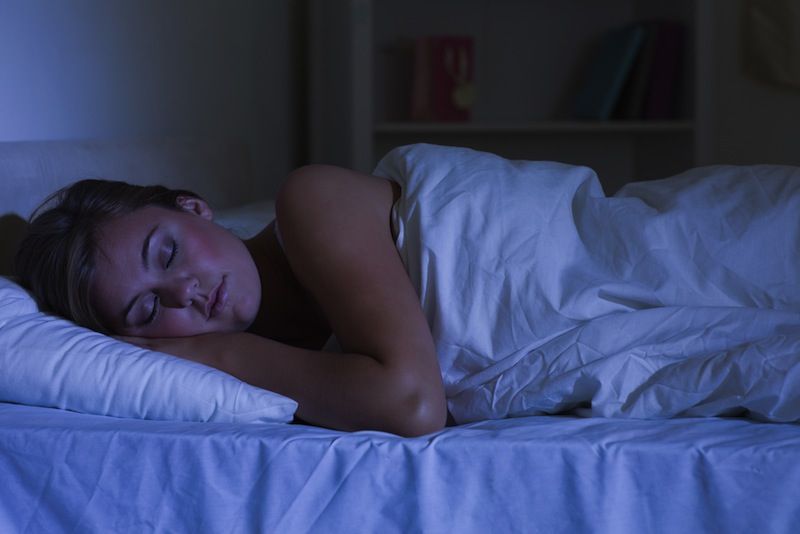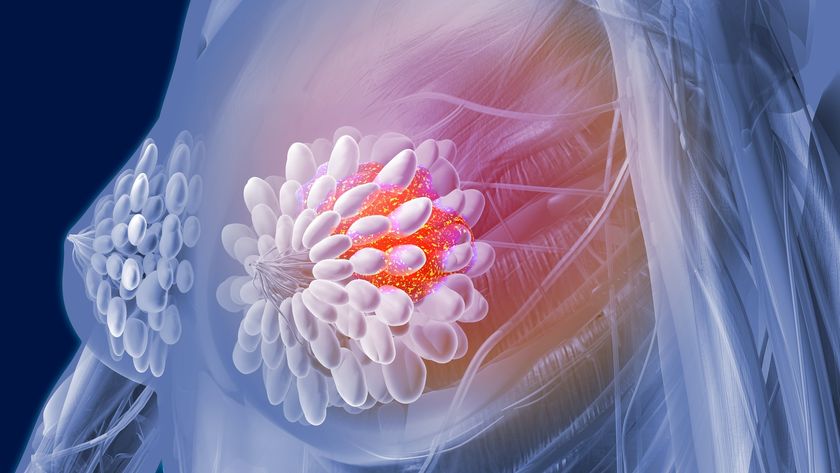Nighttime Light May Interfere with Breast Cancer Drug

Exposure to dim light at night may lead breast cancer cells to become resistant to the common breast cancer drug tamoxifen, according to a new study in rats.
Researchers found that tumors grew 2.6 times faster in rats that were exposed to light at night than in rats that spent their nights in total darkness.
Nighttime light can interfere with the brain's production of the hormone melatonin, and this may decrease cancer cells' sensitivity to tamoxifen, the researchers said. They found that tamoxifen shrank tumors in the rats that slept in the dark, but had no effect on tumors in the rats exposed to dim light at night. However, giving these rats melatonin in their drinking water at night restored their tumors' tamoxifen sensitivity.
"Light at night dysregulates or disrupts a lot of the rhythms in our bodies," including hormone rhythms, said study co-author Steven M. Hill, a breast cancer researcher at Tulane University School of Medicine in New Orleans. That disruption may affect "the development and progression of breast cancer and possibly other cancers," he said.
It's likely that nighttime light could also interfere with other cancer drugs, Hill said. [6 Foods That May Affect Breast Cancer Risk]
Tamoxifen is a key weapon in the fight against breast cancer, but as many as half of women who might be helped by tamoxifen are resistant to it, according to the study, which was published in the August issue of the journal Cancer Research. And most patients who are initially sensitive to the drug will develop resistance to it eventually, the researchers added.
To investigate whether nighttime light exposure and the resulting drop in melatonin production could be a factor in tamoxifen resistance, the researchers compared rats exposed to 12 hours of light followed by 12 hours of total darkness to rats exposed to 12 hours of light, followed by 12 hours of dim light. The dim light level was 0.2 lux, equal to the amount of light shining under a door in a completely dark room.
Sign up for the Live Science daily newsletter now
Get the world’s most fascinating discoveries delivered straight to your inbox.
Normally, the pineal gland begins to release melatonin as darkness falls, and levels of the hormone remain high throughout the night, Hill said. Humans are less sensitive to light than mice are, so it's not clear what level of light exposure would disrupt melatonin production in people. However, the researchers are working on developing clinical trials to answer that question.
The new findings don't mean that cancer patients should take melatonin supplements with their tamoxifen, Hill said, especially since the hormone could contribute to circadian-rhythm disruption if it is taken at the wrong time.
Nevertheless, people should take the health risks of nighttime light exposure seriously, he said. "Particularly if you're a person that has breast cancer, or even if you're at risk of breast cancer, make sure you sleep in the dark," he advised. "Light at night is keeping turned on bad pathways that drive proliferation and survival of cancer cells."
In another study that has not been published, Hill and his colleagues drew blood from healthy people during the day, before and after they took melatonin. When the pre-melatonin "daytime" blood was perfused through human breast tumors implanted in rats, cancer growth-promoting pathways were turned on. But flooding the tumors with blood taken after a dose of melatonin did not activate these pathways, the researchers said.
Follow Live Science @livescience, Facebook & Google+. Originally published on Live Science.












